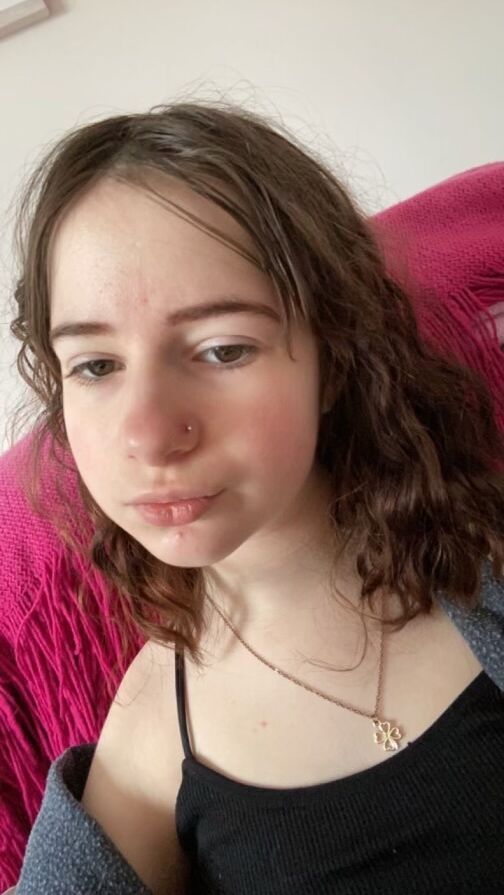Amelia's story: Syndromes without a Name
Amelia is 15 years old and joined the 100,000 Genomes Project in 2015. She has a condition that is likely genetic in origin but due to its rarity or lack of discovery by current testing methods has no name. These are known as a syndromes without a name, or SWAN.

About SWAN
SWAN is not a diagnosis, but a term used when a child or young adult is believed to have a genetic condition and testing has failed to identify its genetic cause. Children affected by a syndrome without a name can have a range of different symptoms and each child is likely to be affected differently. However, many SWAN children are described as having global developmental delay, learning and/or physical disabilities or complex medical needs.
6,000 children in the UK
are born every year with a genetic condition so rare that it does not yet have a name
Some people may be the only person in the world
affected by a particular change to their genetic code
Amelia's story

When Amelia was around two weeks old, her mother Lisa began to feel like something was not quite right. Lisa says: “It was a mother’s intuition, but I would have felt a bit ridiculous taking her to the GP as there wasn’t any clear indication that something was wrong.”
By 4 weeks Lisa’s feeling was growing more alarming, and Amelia had started to hold her neck in an unusual way. Many visits to health visitors, doctors and specialists followed.
When Amelia was 4 months old, she had already had a few chest infections and had been referred to Great Ormond Street Hospital. After Amelia underwent a variety of tests, the doctors suspected she may have a form of congenital myasthenia. This is an inherited disorder that involves muscle weakness and fatigue.
However, when Lisa returned three months later for the results of the genetic tests, she was told that congenital myasthenia hadn’t been found and that more tests were being carried out.
Getting a diagnosis
By the age of 4, Amelia had undergone major surgery and been in and out of hospital. At this point Lisa was told by specialists they didn’t think Amelia had myasthenia, but that they weren’t sure what the issue was.
Years later, in 2015, Lisa received a call from Great Ormond Street Hospital telling her that Amelia might be a good candidate for the 100,000 Genomes Project. Lisa remembers: “I jumped at the chance for answers. Our expectations were managed, as we were told during the consent process that if we received a diagnosis, it was unlikely to lead to a ‘fix’ for Amelia’s condition but that it would help research.”
As of today, Amelia has not received a diagnosis. Reasons for not getting a result can vary. It can be because the gene causing a disorder has not yet been discovered, or because more than one gene is causing the problem, for example.
Lisa says: “I have almost made peace with the fact that we may never have a diagnosis, but I am always hopeful. No-one has stopped looking for Amelia’s answer and I’ve tried to put it out of my mind.”
Living with SWAN
Some aspects of Amelia’s condition have remained the same, while other new things have appeared. She has had to have major bowel surgery on several occasions, and experiences chronic muscle weakness and fatigue which leads to exhaustion quicker than others. She is also on several different medications which she takes daily to help ease symptoms.
But as Lisa is keen to point out, Amelia is so much more than her condition. Lisa says: “She’s funny and feisty and smart and completely awesome.
“She’s talked about potentially working with other young people who have medical or physical needs when she’s older since she feels she can relate to the people in those situations. Some of the play therapists she met when she was younger also left a big impression on her.
“While I wish Amelia’s life was less difficult, I wouldn’t change her and who she is as a person in any way, shape or form.”
Over the course of many years, Lisa has also received support from SWAN UK. SWAN UK is the only dedicated support group for families where children have an undiagnosed, likely genetic condition. She says: “I’ve been fortunate to make some really good friends from there. Reading people’s posts and messages and having that human connection with others has been great. It’s inspired me to try and do the same for other parents by becoming a parent representative.”
How whole genome sequencing can help those with SWAN
With whole genome sequencing and more genomic research comes more efforts from and resources for researchers around the world to uncover answers for those with undiagnosed genetic conditions.
Following Amelia joining the 100,000 Genomes Project, Lisa joined the independent Participant Panel.
She says: “Seeing all the work in genomics that goes on behind the scenes, and the sort of research that is happening, I’m confident that in my children’s lifetime we’ll arrive at a point where healthcare can become a lot more proactive and less reactive. I wish I could see what it could look like 100 years from now.”